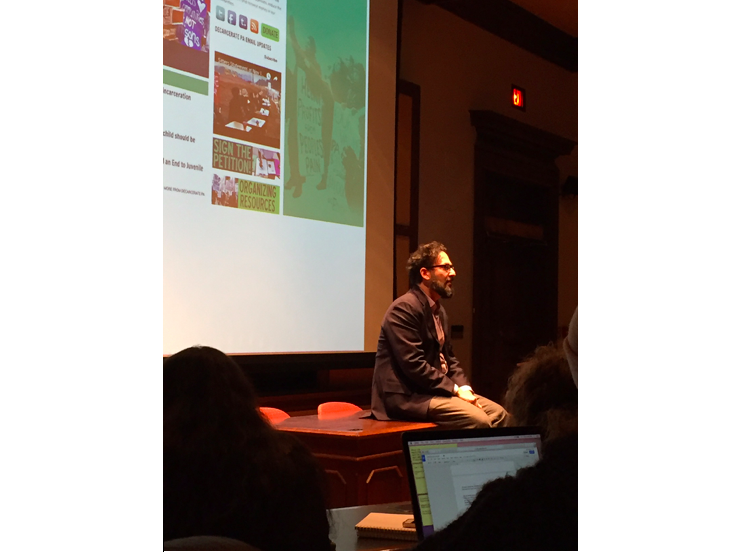In his talk on mass incarceration Monday night, guest speaker and University of Rochester professor Joshua Dubler addressed the incarceration rate in the United States, which is also the highest incarceration rate in the world with 689 per 100,000 people, according to The Sentencing Project.
In his presentation, Dubler contributed this high rate to the “religion of white supremacy,” the intertwining of the American prison system with the economy and political negligence in the country.
Dubler is an intersectional scholar of American religious history, ethnography and religious theory, and a religion professor at University of Rochester. He wrote a book about religion in American prisons entitled “Down in the Chapel: Relgious Life in an American Prison” and is currently co-authoring a book called “Break Every Yoke: Religion, Power, and the End of Mass Incarceration.”
Dubler proposed in his talk that the only way to make the necessary reforms to “this humongous thing we’ve built” is to abolish the system and start over.
“[Abolition] is itself somewhat religious. It plays these notes and these tenors of religion with terms of pushing values and absolutes and that kind of holy fury” that a movement needs to succeed, Dubler said.
During the question and answer portion, a student asked if the problem with the system was less serious, would complete abolition still be the solution to America’s mass incarceration problem.
“If we only had 100,000 people in prison, and our system weren’t racist and classist…locking someone in a cage for a long period of time is still an abomination,” Dubler said. He then asked the audience to ponder the question, what if the “cages” our society calls prisons weren’t cages at all?
Another audience member asked about how to balance the economic importance of the prison system with other possible government spending opportunities. Dubler said that with the current “retrenched welfare system” in America, the best way to get rid of the economic importance of prisons is to put money elsewhere, such as toward education and healthcare, to therein create less of a need for prisons.
Jafar Bhatti ’19, a student program coordinator of MOSAIC, said that Dubler was asked to come to campus largely because of his book, “Down in the Chapel: Religious Life in an American Prison.” His program was co-sponsored by the Office of Intercultural Development, the Office of Religious and Spiritual Life and the LANDIS Center.
Dubler’s talk kicked off the LANDIS Center-sponsored Criminal Justice Reform Awareness Week. This week has hosted daily programs meant to help educate Lafayette students on problems of mass incarceration and other challenges of the American criminal justice system.
Criminal Justice Reform Awareness week included Dubler’s lecture, the screening of the documentary “New Asylums,” a panel discussion about the prison system and a campaign to reach out to politicians asking for reform.





















































































































